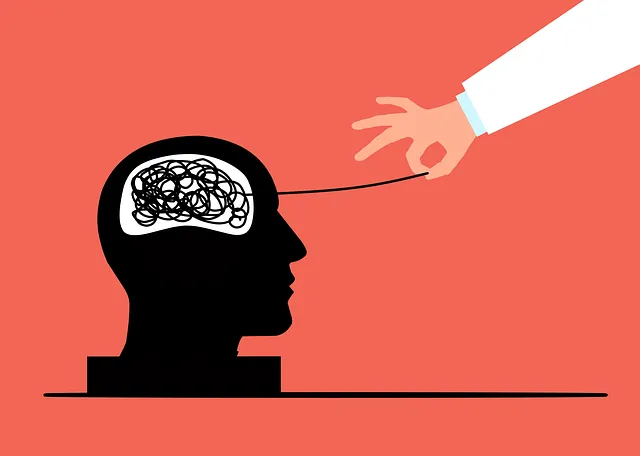Kaiser Permanente Lone Tree prioritizes healthcare provider well-being by tackling burnout through comprehensive strategies. They offer regular workshops on conflict resolution and positive thinking, along with tailored mental wellness programs focusing on mindfulness, cognitive therapy, and stress reduction techniques. These interventions aim to build resilience, promote work-life balance, and foster supportive connections in a fast-paced healthcare environment. By integrating these methods, Kaiser Permanente Lone Tree ensures better mental health outcomes for providers, empowering them to deliver exceptional care while preventing burnout.
Healthcare provider burnout is a growing concern within organizations like Kaiser Permanente. This article explores strategies to prevent and mitigate burnout among healthcare workers at Kaiser Permanente Lone Tree. We delve into the unique challenges faced by these providers, focusing on the intersection of mental health and burnout. By examining effective interventions and fostering supportive cultures, we aim to provide insights for creating sustainable well-being among Kaiser Permanente’s workforce in Lone Tree and beyond.
- Understanding Burnout Among Healthcare Providers at Kaiser Permanente Lone Tree
- The Impact of Mental Health on Burnout Prevention
- Effective Strategies to Combat Burnout in the Healthcare Setting
- Fostering a Supportive Culture for Long-Term Well-being
Understanding Burnout Among Healthcare Providers at Kaiser Permanente Lone Tree

At Kaiser Permanente Lone Tree, understanding burnout among healthcare providers is a paramount concern. The demanding nature of the medical field, coupled with long hours and high-stress environments, can lead to significant mental health challenges for staff members. Burnout rates are particularly concerning within the organization, highlighting the need for comprehensive prevention strategies.
Kaiser Permanente Lone Tree has recognized the importance of Mental Health Awareness, implementing various initiatives to support providers’ well-being. These include regular workshops on Conflict Resolution Techniques and sessions focused on fostering Positive Thinking. By prioritizing these aspects, the healthcare provider aims to create a resilient and supportive work environment, ultimately mitigating burnout risks among its dedicated professionals.
The Impact of Mental Health on Burnout Prevention

Mental health plays a pivotal role in preventing burnout among healthcare providers. The demanding nature of the medical field can significantly impact practitioners’ psychological well-being, leading to increased stress levels and potential burnout if left unaddressed. According to research, especially from organizations like Kaiser Permanente, mental health interventions tailored for Lone Tree residents have shown promising results. These programs focus on fostering resilience and promoting a healthy work-life balance.
Integrating Mind Over Matter principles can be transformative in combating burnout. Anxiety relief techniques, such as mindfulness meditation and cognitive-behavioural therapy, empower healthcare workers to manage stress effectively. Additionally, empathy-building strategies encourage deeper connections with patients and colleagues, reducing feelings of isolation and fostering a supportive environment. By prioritizing mental well-being, healthcare providers can enhance job satisfaction and sustain their dedication over time.
Effective Strategies to Combat Burnout in the Healthcare Setting

In the demanding healthcare landscape, burnout among providers is a growing concern, particularly for those working in fast-paced environments like Kaiser Permanente Lone Tree. To combat this issue, several effective strategies can significantly improve resilience and well-being. One powerful approach involves integrating Stress Reduction Methods tailored to the unique challenges of healthcare professionals. These methods may include mindfulness practices, meditation techniques, and deep breathing exercises proven to lower anxiety levels and enhance emotional regulation.
Furthermore, Self-Awareness Exercises play a pivotal role in preventing burnout. Encouraging providers to engage in regular self-reflection allows them to identify early warning signs of stress and exhaustion. Through journaling, cognitive reframing, or even engaging in creative outlets like art therapy, healthcare workers can gain deeper insights into their thoughts and emotions. Such practices foster a sense of agency, enabling professionals to take proactive measures against burnout and promote better mental health outcomes for themselves and their patients at Kaiser Permanente Lone Tree.
Fostering a Supportive Culture for Long-Term Well-being

At Kaiser Permanente Lone Tree, we recognize that fostering a supportive culture is key to preventing healthcare provider burnout and promoting long-term well-being. This involves creating an environment where mental health is prioritized as much as physical health. Our dedicated team offers Mental Wellness Coaching Programs Development tailored to meet individual needs, focusing on mood management techniques and stress reduction strategies.
Through public awareness campaigns development and open dialogue, we encourage providers to seek support when needed. By integrating these initiatives, Kaiser Permanente Lone Tree strives to revolutionize the healthcare landscape, ensuring our providers feel valued, supported, and empowered to deliver exceptional care for years to come.
Burnout among healthcare providers is a growing concern, but through comprehensive strategies like those implemented at Kaiser Permanente Lone Tree, focusing on mental health and fostering supportive cultures, we can create sustainable solutions. By integrating evidence-based practices and prioritizing well-being, healthcare organizations can prevent burnout, enhance job satisfaction, and ultimately improve patient outcomes in the competitive landscape of Kaiser Permanente mental health services in Lone Tree.






